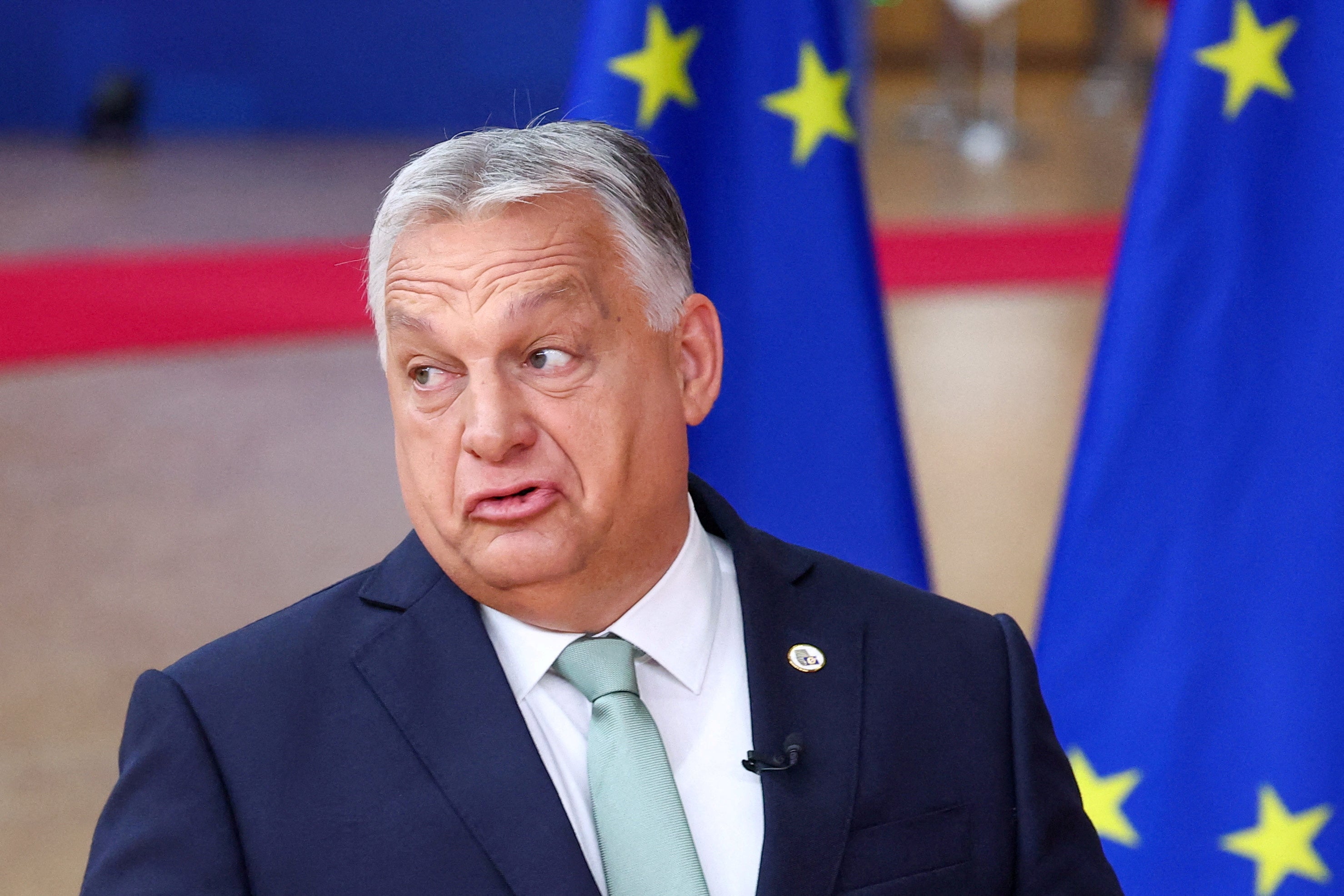Hungarian Prime Minister Viktor Orban’s late February warning to Pride organisers not to prepare for this year’s parade in Budapest initially shocked Mate Hegedus, one of the 15-strong team behind the event.
“Then the reality of his words set in, and the fear started,” said Mr Hegedus, who watched Mr Orban’s state of the nation address, where he made the remarks, on television.
Mr Hegedus, who is non-binary, underscored the significance of the source of the comments. “It’s such a prominent person for these words to come from,” he stated. “It’s the prime minister after all.”
Mr Orban, who has led the charge on LGBTQ+ censorship in Europe, delivered his address in the Castle Garden Bazaar in Budapest in front of supporters from his right-wing Fidesz party.
“I advise the Pride organisers that they should not bother preparing for this year’s parade,” Orban said.
Soon, it became clear why.

In March, Fidesz put forward a bill to ban Pride events on the grounds that they could be considered harmful to children. In less than 48 hours, parliament passed the bill.
Orban has scaled up his attacks on the media and LGBTQ+ people since the inauguration of U.S. President Donald Trump, who has also cracked down on LGBTQ+ rights.
The new law stated organisers would face a year in jail if they disobeyed and that all attendees would be subjected to facial recognition technology and risk fines of up to 500 euros($590).
Hegedus and the Pride team decided to rebel.
“Before the ban, we’d meet regularly online to discuss the logistics and operational matters,” Hegedus said.
But everything changed after Orban’s speech.
“We were aware the government might be trying to monitor us,” Hegedus said. “There were times I was afraid I was being watched or followed.”

So the team went offline.
“We’d meet in private in one of our apartments, behind closed doors. Everyone would leave their laptops and phones outside,” said Hegedus.
“We needed to be as secure as possible.”
Orban calls march ‘repulsive’
As the date neared, the verbal attacks on Pride mounted.
Hungary’s Minister of Justice Bence Tuzson wrote to several European embassies, warning that Pride was a “legally banned assembly” and that any participants from their governments would be breaking Hungarian law.
Orban repeated his threats to imprison the organisers and fine participants on the eve of Pride.
“My grandmother was worried,” Hegedus said. “I had to make her believe everything was going to be alright.”
Then, Gergely Karacsony, the liberal mayor of Budapest, said the city would host the march as a municipal event instead.
Speaking to reporters the day before Pride, he said “crowds would be safe” and there would be no penalties for attending.
It worked.
The next day, last Saturday, an estimated 100,000 people, including 70 European diplomats, took part in Budapest’s 30th Pride march, which swelled into one of the largest displays of opposition to Orban in recent years.

Far-right extremist groups organised small counter protests along the route, forcing police to divert the march, but there were no reports of violence.
On Sunday, Orban, who faces parliamentary elections next year, called Pride “repulsive and shameful” and attacked the European Union for enabling it.
Fears for future
The defiant display underscores Orban’s waning popularity – Fidesz is polling 15 points behind the main opposition party Tisza.
Orban’s opponents see the Pride ban as part of a wider crackdown on democratic freedoms ahead of next year’s election.
There are protests every month in Hungary. Inflation is among the highest in the European Union and food prices rose 7% year-on-year in March.
Marton Gulyas, the founder of Partizan, the most influential independent media outlet in Hungary, said he could not imagine Orban peacefully handing over power if he loses the vote.
And despite the success of the Pride march, he said the outlook for LGBTQ+ rights in the country was bleak.
“Even if they lose the election, Fidesz will continue to have a lot of influence over the Supreme Court, which can make the new government’s life a living hell,” he said.
“There are a lot of cracks in the system. If they are going to lose, they can still do a lot of things to influence the future of Hungary.”

Gulyas is also concerned about a proposed transparency law that would draft a list of organisations that get foreign funding and restrict or even shut them down if they are deemed to threaten Hungary’s sovereignty and culture.
The bill, similar to Russia’s “foreign agents law”, was meant to be debated in June, but the government postponed the debate and vote after protests.
Tamas Dombos, board member of Hatter Society; Hungary’s largest LGBTQ+ non-profit – said the law would be “deadly” for the organisation.
“The transparency law is basically an anti-NGO law. Human rights organisations receiving any kind of funding from abroad would be put on a government list of groups harming the sovereignty of Hungary. And if you’re put on that list, your organisation is essentially dead,” Dombos said.
Asked about the future of LGBTQ+ rights in Hungary, Viktoria Radvanyi, the president of Budapest Pride, was adamant the fight would go on.
“We want equal rights and we want them now and not in 50 years. This is an opportunity to craft Europe’s future. We want to live freely in this continent and not just learn how to survive.”




